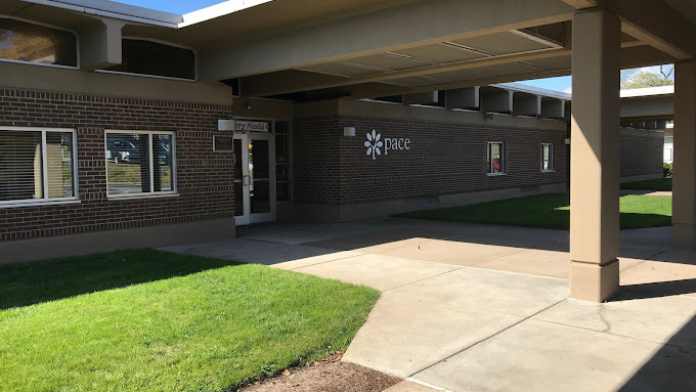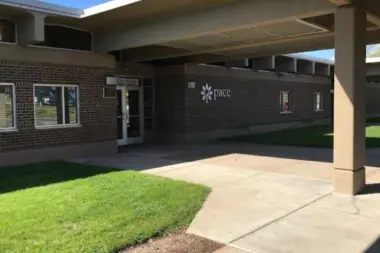About Pace School
Pace School in Pittsburgh Pennsylvania offers something really special. It gives children and teens a place where they can learn and heal at the same time. This isn’t your typical classroom though. Students get access to real mental health care during the school day with services like group therapy and trauma treatment. There is also a partial hospitalization program for kids who need more help but can still live at home.
Most of the kids here have a mental health diagnosis. Many are also navigating learning disabilities or autism. Each student gets a plan that is just for them and their families are involved too. The staff works with parents and providers to build a support system that really fits each child.
Who Can Attend Pace
Pace School is built for students who need more support than a traditional classroom can provide. These are kids with complex needs like autism or other developmental challenges. Many have already tried every resource available in their home district before coming to Pace. Every student qualifies for special education and may also have at least one mental health diagnosis.
Families don’t apply directly to enroll. The referral comes through the child’s school but usually through the special education department. If you’re a parent and think your child would benefit from Pace, the best first step is to reach out to your district and ask for a referral. The team at Pace also has an admissions department that can walk you through the steps and answer your questions.
Summer Support Through the Extended School Year
Pace offers an Extended School Year Program that runs five weeks through the summer and gives students consistent support in both academics and behavior for those who don’t thrive when taking time away from school.
This program is open to current Pace students and to others who qualify through their IEP teams. Any student outside of Pace who qualifies won’t be able to enter into Pace’s partial hospitalization program.
Rehab Score
Gallery


Other Forms of Payment
Medicaid is a state based program that helps lower-income individuals and families pay for healthcare. Medicaid covers addiction treatment so those enrolled can use their coverage to pay for rehab. When a program accepts Medicaid the client often pays very little or nothing out of their own pocket.
Addiction Treatments
Treatments
Mental health rehabs focus on helping individuals recover from mental illnesses like bipolar disorder, clinical depression, anxiety disorders, schizophrenia, and more. Mental health professionals at these facilities are trained to understand and treat mental health issues, both in individual and group settings.
Clinical Services
Cognitive Behavioral Therapy (CBT) is a therapy modality that focuses on the relationship between one's thoughts, feelings, and behaviors. It is used to establish and allow for healthy responses to thoughts and feelings (instead of unhealthy responses, like using drugs or alcohol). CBT has been proven effective for recovering addicts of all kinds, and is used to strengthen a patient's own self-awareness and ability to self-regulate. CBT allows individuals to monitor their own emotional state, become more adept at communicating with others, and manage stress without needing to engage in substance abuse.
Whether a marriage or other committed relationship, an intimate partnership is one of the most important aspects of a person's life. Drug and alcohol addiction affects both members of a couple in deep and meaningful ways, as does rehab and recovery. Couples therapy and other couples-focused treatment programs are significant parts of exploring triggers of addiction, as well as learning how to build healthy patterns to support ongoing sobriety.
Dialectical Behavior Therapy (DBT) is a modified form of Cognitive Behavioral Therapy (CBT), a treatment designed to help people understand and ultimately affect the relationship between their thoughts, feelings, and behaviors. DBT is often used for individuals who struggle with self-harm behaviors, such as self-mutilation (cutting) and suicidal thoughts, urges, or attempts. It has been proven clinically effective for those who struggle with out-of-control emotions and mental health illnesses like Borderline Personality Disorder.
Research clearly demonstrates that recovery is far more successful and sustainable when loved ones like family members participate in rehab and substance abuse treatment. Genetic factors may be at play when it comes to drug and alcohol addiction, as well as mental health issues. Family dynamics often play a critical role in addiction triggers, and if properly educated, family members can be a strong source of support when it comes to rehabilitation.
Group therapy is any therapeutic work that happens in a group (not one-on-one). There are a number of different group therapy modalities, including support groups, experiential therapy, psycho-education, and more. Group therapy involves treatment as well as processing interaction between group members.
In individual therapy, a patient meets one-on-one with a trained psychologist or counselor. Therapy is a pivotal part of effective substance abuse treatment, as it often covers root causes of addiction, including challenges faced by the patient in their social, family, and work/school life.
Trauma therapy addresses traumatic incidents from a client's past that are likely affecting their present-day experience. Trauma is often one of the primary triggers and potential causes of addiction, and can stem from child sexual abuse, domestic violence, having a parent with a mental illness, losing one or both parents at a young age, teenage or adult sexual assault, or any number of other factors. The purpose of trauma therapy is to allow a patient to process trauma and move through and past it, with the help of trained and compassionate mental health professionals.
Staff
Matthew Helfrich
President, BOD
Michael Nicolella
Vice President, BOD
Cheryl Levin
Secretary, BOD
Debbi Casini Klein
BOD
Brett Fulesday
BOD
James W. Isler
BOD
Contact Information
2432 Greensburg Pike
Pittsburgh, PA 15221